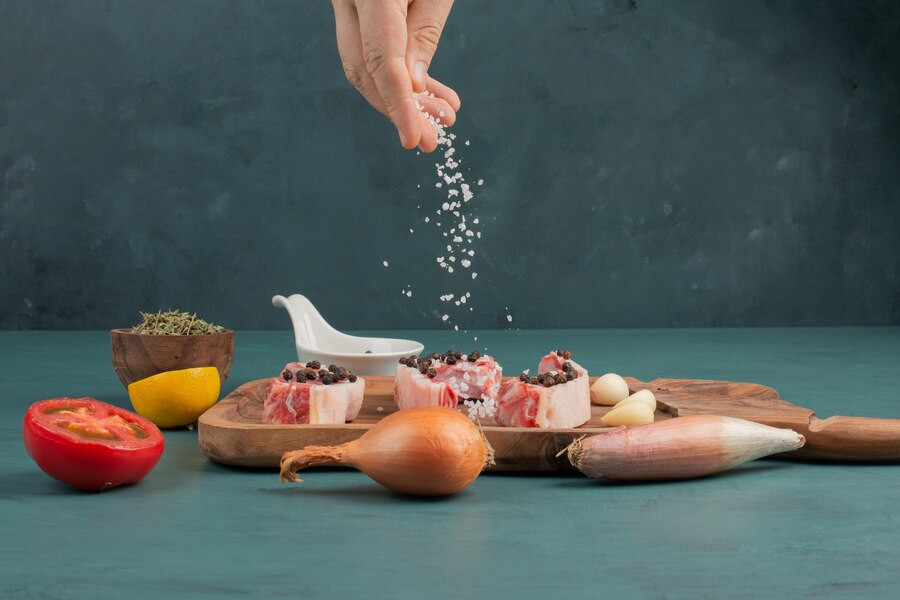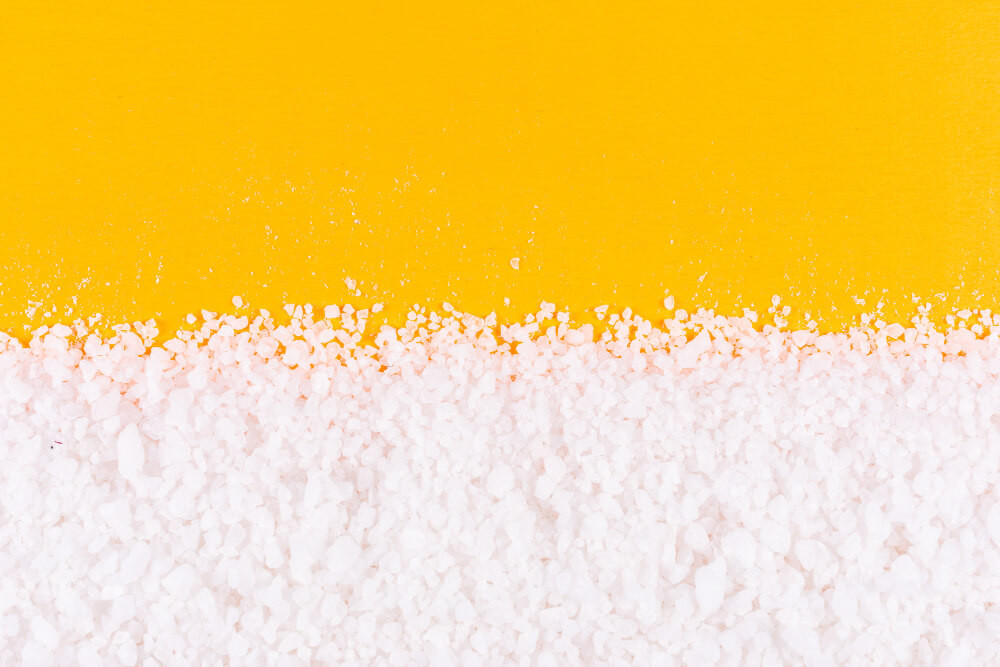Salt and MSG (monosodium glutamate) are two common flavorings in food preparation. But the question of which of the two is healthier is still up for discussion. Some people think that salt is healthier than MSG, and vice versa.
In this article, you can find out more about the differences between MSG and salt and consider their impact on health.
What is MSG?
MSG stands for Monosodium Glutamate. It is a common food additive used to enhance umami flavor in dishes.
The production process of MSG involves the fermentation of ingredients such as corn, sugar cane, beet, tapioca or molasses. Food processing frequently adds MSG to enhance flavor, even though L-glutamic acid is also naturally present in food.
Is it safe to use MSG in food?
Since the early 1900s, MSG has been added to food to improve its flavor. MSG gained a negative reputation in the late 1960s and was believed to be connected to a number of health issues. However, most of the myths and fears associated with MSG have been proven false.
The majority of scientific research backs up MSG's safety when used in food. According to these studies, MSG has no appreciable detrimental effects on health, with the possible exception of a small percentage of people who may react negatively to the spice.
Despite being declared safe for use in food, the FDA recommends a safe daily consumption of MSG, which is about 2.5 grams per day for adults.
Also read: Tips For Reducing Daily Salt Intake
Side effects of consuming MSG
MSG is safe to use in food, according to health organizations like the FDA and BPOM, but some people may have sensitivity reactions to it that are referred to as MSG complex symptoms. Studies show that these symptoms are typically transient and mild, and they include:
- Feelings of nausea
- Headache
- Muscle pain
- Numbness or burning sensation in or around the mouth
- Irregular heartbeat
- Drowsiness
What is salt?
Salt, also known as sodium chloride, contributes to enhancing the flavor of food. Salt is also used as a food preservative, as high concentrations of salt inhibit the growth of bacteria.
The composition of salt consists of about 40% sodium and 60% chloride. The human body needs a small amount of sodium to perform vital body functions, including conducting nerve impulses, contracting and relaxing muscles, and maintaining water and mineral balance.
Is it safe to use salt in food?
The use of salt in food is considered safe as long as it is not excessive. WHO recommends a daily limit of 2,000 mg of sodium consumption per day or 1 teaspoon per day.
Side effects of consuming salt
It is important to remember that consuming too much salt can have negative effects on the body, both short-term and long-term.
Some of the side effects that may occur include the following:
- Swelling due to fluid retention in the body
- Increased thirst
- Increased blood pressure
- Sleep disturbances at night due to the need to drink and urinate
Read more: The Risk Of Restricting Salt Intake Too Much
Salt or MSG: Which Is Healthier?
MSG and table salt both contain sodium. The difference is that table salt can contain about 40% sodium, while MSG only contains about 12% sodium.
Because of this, MSG is an attractive substitute for people who are watching their sodium intake. By using MSG instead of salt, you can still enjoy the umami flavor without significantly increasing your sodium intake.
This does not, however, imply that you can use a lot of MSG in your meals. It is still advisable to use other natural spices that are low in sodium content and healthier. You should also consider the wide range of individual reactions that people have to MSG.
If you are unclear about anything or would like advice on how much salt or MSG to put in your food, you can consult a doctor or nutritionist.
If you need medical advice or consultation, you can either visit a doctor or make use of the consultation features that are available in the Ai Care application by downloading the Ai Care application from the App Store or Play Store.
Looking for more information about nutrition, food, and other diet tips? Click here!
- Sean Edbert Lim, MBBS
Amber Charles Alexis, MSPH, RDN (2021). MSG: What the science says about its safety. Available from: https://www.medicalnewstoday.com/articles/msg-what-the-science-says-about-its-safety
Zia Sherrell, MPH (2021). MSG: Is it bad for you?. Available from: https://www.medicalnewstoday.com/articles/is-msg-bad-for-you
Cleveland Clinic (2024). Why Too Much Salt Can Be Bad for You. Available from: https://health.clevelandclinic.org/is-salt-bad-for-you
Harvard TH Chan (2023). Salt and Sodium. Available from: https://www.hsph.harvard.edu/nutritionsource/salt-and-sodium
Cleveland Clinic (2022). Is MSG Actually Bad for You?. Available from: https://health.clevelandclinic.org/is-msg-really-harmful
Karthik Kummar (2022). 11 Foods With Monosodium Glutamate (MSG). Available from: https://www.medicinenet.com/11_foods_with_monosodium_glutamate_msg/article.htm
Medline Plus (2022). MSG symptom complex. Available from: https://medlineplus.gov/ency/article/001126.htm
Mayo Clinic (2023). Sodium: How to tame your salt habit. Available from: https://www.mayoclinic.org/healthy-lifestyle/nutrition-and-healthy-eating/in-depth/sodium/art-20045479











